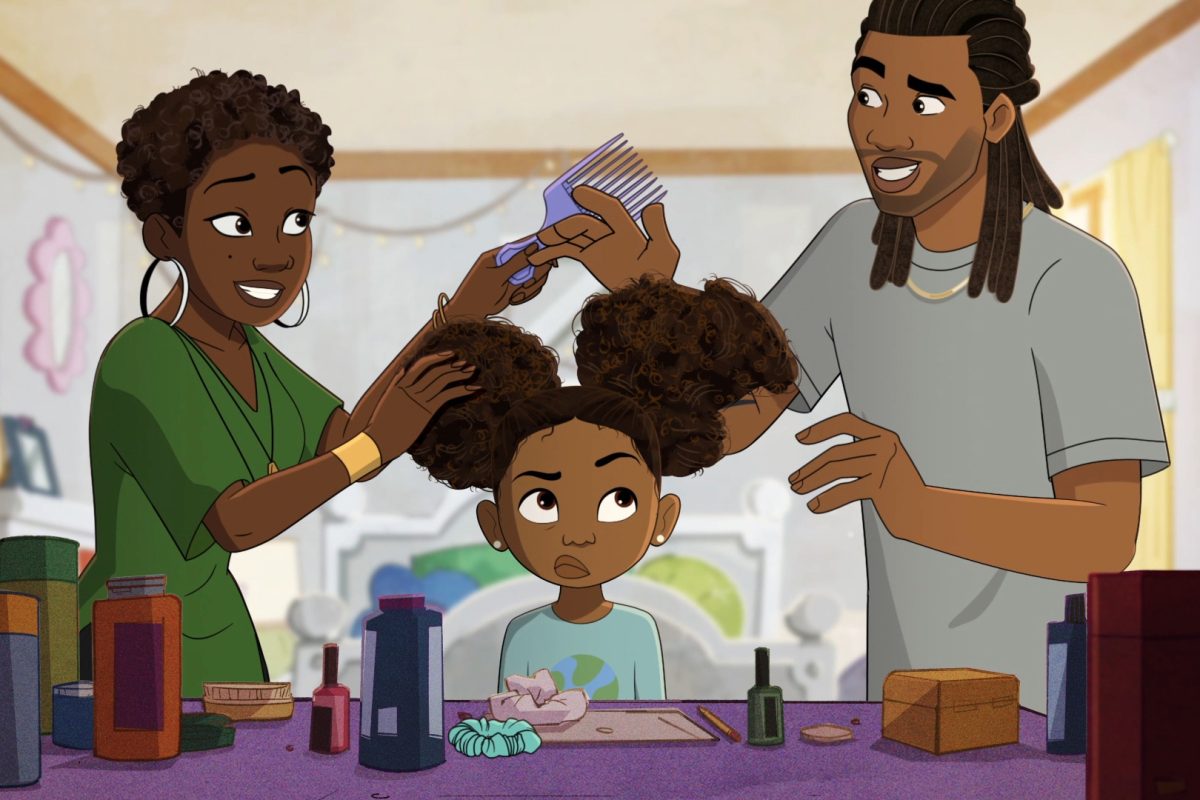A young African American child wakes up, excited for a big day ahead of her. She jumps out of bed, throws on her clothes, excitedly rushing into the bathroom — and stops abruptly, seeing the tangled mess that is her curly hair. She tries using online tutorials her mother created for her hair, but they are impossible to recreate without her mother’s touch.
Her father steps in, weary of how to proceed, but together they figure it out it looks just as the girl’s mother used to do. They visit the mother — who has no hair — at the hospital and the three embrace.
This six-minute Oscar-winning short film “Hair Love” by Matthew A. Cherry forms the basis and inspiration for “Young Love,” a tale that effectively elaborates on the joys and struggles of everyday life with a South Side of Chicago spin. The 12-episode teen show streaming on Max dives into the nuances sustaining a career, providing for a family and navigating social issues with a lighthearted and honest perspective.
“Young Love” follows the life of a low-income African American family who live on Chicago’s West Side, six-year-old Zuri, her millennial parents and humorous grandparents. From episode one, the audience learns Zuri’s mother Angela, a local hairdresser, is recovering from cancer therapy as she begins to reintegrate into her normal life. She works together with Zuri’s father Stephen, a modest-but-rising music producer, to take care of Zuri as she navigates school, social situations and familial challenges.
Key themes of family, love, home, sacrifice and gratitude tie every episode together. Each theme is woven seamlessly into the fabric of the show, as the characters learn to balance each concept in their own ways.
Each episode explores social issues while focusing on one specific aspect of the family’s life, with titles such as “Work Love,” “Charity Love” and “Generational Love.” The repetition of the word love emphasizes its significance in the context of the show as a whole, continuously placing themes of affection, appreciation and respect at the forefront.
Humor and wit demonstrate the realness of the characters. They are often seen poking fun at each other, especially interactions between Zuri and her parents. In this way, the show feels genuine and not hyper-filtered as with many teen-aimed shows.
The episodes do a nice job at tying in significant life lessons and values. Characters share remarks about what they’ve learned about themselves or how they dealt with challenges in their life, often directed at the youngest member of the family, Zuri.
As it sheds light on important issues and imparts an optimistic way of life, “Young Love” is both amusing and compelling. Through easily relatable anecdotes and a witty edge, it demonstrates the ups and downs of life, particularly of some Chicago families facing financial struggles, career failures and familial conflict, taking a direct but light-hearted and fun-spirited approach to discussing raw, potentially difficult topics. While the show is centered on Zuri and her life, the other characters also have their own journeys.
“Young Love” enjoyably and effectively demonstrates that love is truly the biggest uniting force of all.






















































